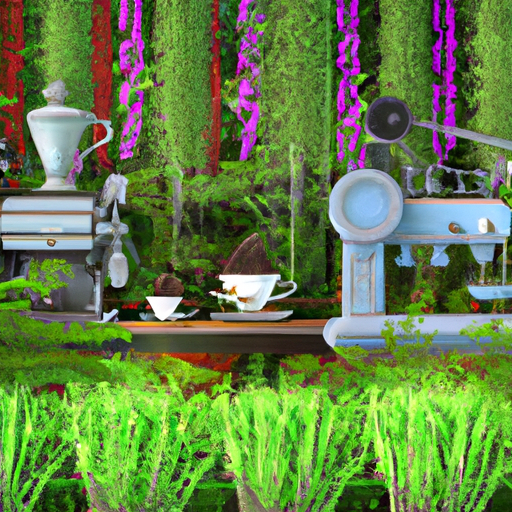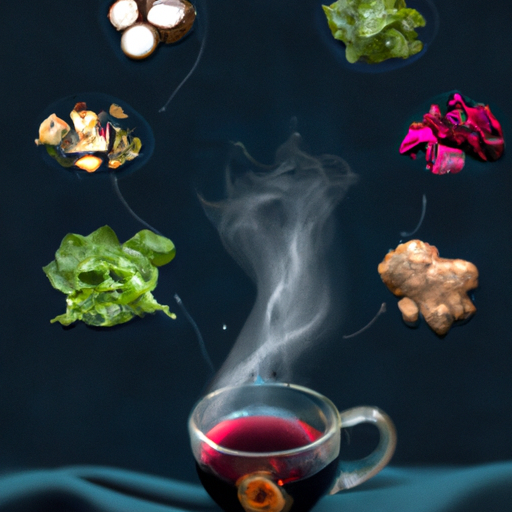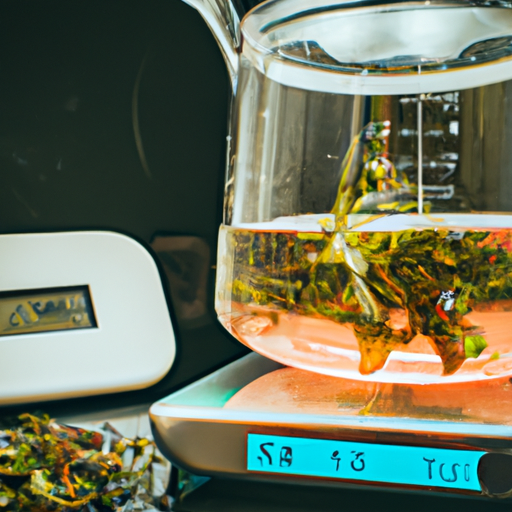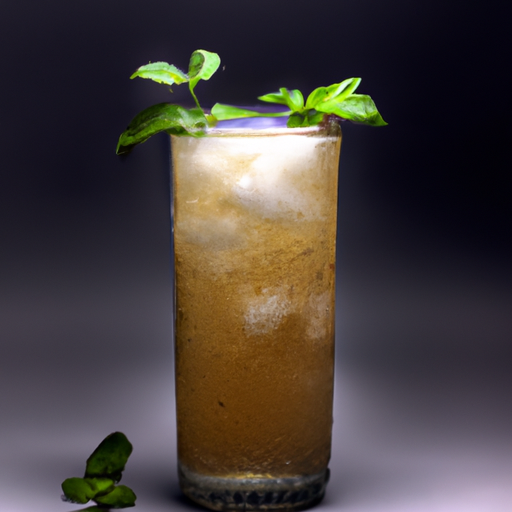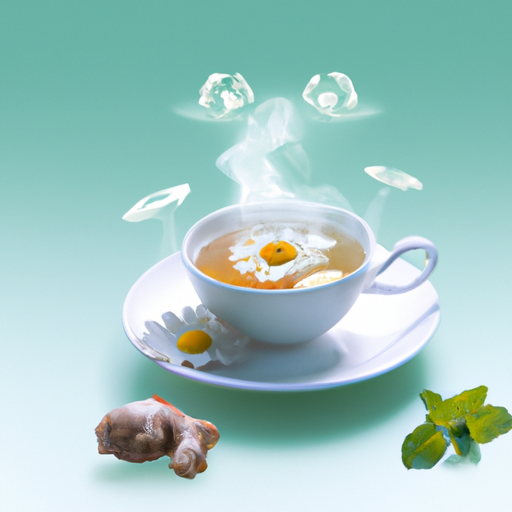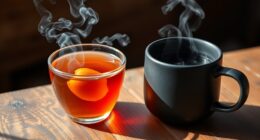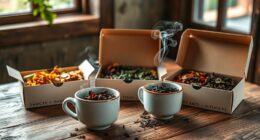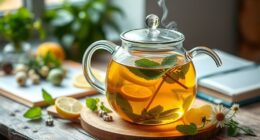Did you realize that the average American spends more than $1,100 a year just on coffee? Yes, recent data shows that coffee is a daily essential for many of us, but it can also take a big chunk out of our finances.
However, have you ever considered the cost of herbal tea compared to a cup of joe? In this article, we will delve into the world of herbal tea and coffee, comparing their prices and uncovering the factors that affect their costs. We will explore the average prices of herbal tea and coffee in different locations, as well as the costs and benefits of specialty options. Additionally, we will provide tips on how to save money on these beverages without compromising quality.
So, if you’re curious to find out which is more expensive, herbal tea or a cup of coffee, keep reading to discover the data-driven answer.
Key Takeaways
- The cost of herbal tea and coffee can vary based on factors such as production methods, ingredient availability, and market demand.
- Specialty herbal tea and coffee tend to have a higher price tag due to their unique flavors, distinct flavor profiles, and enhanced health benefits.
- Tips for saving money on herbal tea include buying cheap store-brand options and purchasing in bulk, while for coffee, making it at home with a quality coffee maker or French press and buying whole coffee beans in bulk can help save money.
- Herbal tea can range in price from $3 to $7 per box, with an average cost per cup of $0.15 to $0.35, while a cup of coffee from a local cafe can cost $2 to $5, and brewing coffee at home can cost $0.10 to $0.50 per cup.
Comparison of the Cost of Herbal Tea and Coffee
So, are you curious about whether herbal tea or a cup of coffee will cost you more? Well, let’s analyze the cost factors influencing these beverages and compare them objectively.
When it comes to the price, herbal tea tends to be more affordable than coffee. While the cost can vary depending on the brand and quality, in general, herbal teas are less expensive per serving than a cup of coffee.
However, it’s important to consider the health benefits as well. Herbal tea is known for its natural ingredients and various health benefits. It can help with relaxation, digestion, and immune support, among other things. On the other hand, coffee provides a boost of energy due to its caffeine content, but excessive consumption may lead to negative effects such as increased heart rate and anxiety.
Now, let’s transition to the next section where we’ll explore the factors affecting the price of herbal tea and coffee.
Factors Affecting the Price of Herbal Tea and Coffee
When it comes to the price of herbal tea and a cup of coffee, you might be surprised to learn that one interesting statistic is the impact of supply and demand on their cost. Here are three factors that affect the prices of herbal tea and coffee:
-
Production methods: The way herbal tea and coffee are produced can greatly influence their prices. For example, organic herbal tea or coffee, which is produced without the use of synthetic fertilizers or pesticides, tends to have a higher price tag due to the more labor-intensive and costly production process.
-
Availability of ingredients: The availability of the ingredients used in herbal tea and coffee can also affect their prices. Some ingredients may be rare or difficult to cultivate, leading to higher prices. Additionally, factors such as weather conditions and crop diseases can impact the availability and cost of these ingredients.
-
Market demand: The demand for herbal tea and coffee plays a significant role in determining their prices. If there is a high demand and limited supply, the prices are likely to increase. Conversely, if the demand is low or there is an oversupply, the prices may decrease.
Considering these factors, it becomes clear that the production methods and ingredient availability greatly influence the cost of herbal tea and coffee. This sets the stage for the next section, where we will explore the average price of herbal tea in different locations.
Average Price of Herbal Tea in Different Locations
The cost of herbal tea in various locations varies significantly. When comparing the price of herbal tea to that of a cup of coffee in high-end cafes, it’s evident that herbal tea tends to be more expensive. This is primarily due to the fact that herbal tea is often considered a specialty beverage and is made using high-quality ingredients. Additionally, the organic nature of herbal tea can further increase its price compared to regular coffee. The cost of organic herbal tea is generally higher due to the increased cost of sourcing and processing organic ingredients.
However, it’s important to note that the price of herbal tea can also vary depending on the location and the specific cafe. In some areas, the price difference between herbal tea and coffee may be minimal, while in others, it can be quite substantial.
Transitioning into the subsequent section, it’s interesting to explore the average price of a cup of coffee in different locations.
Average Price of a Cup of Coffee in Different Locations
If you travel to different locations, you’ll notice that a cup of coffee can range in price from a few dollars to over six dollars. The cost of coffee in popular coffee chains can vary significantly, with factors such as location, brand reputation, and quality influencing the prices.
In general, regular coffee tends to be less expensive compared to specialty coffee options. Regular coffee, which is typically brewed from standard beans, can be found at lower price points, making it a more affordable choice for those on a budget. On the other hand, specialty coffee, which includes options like espresso-based drinks or coffee made from premium beans, tends to be pricier due to the additional effort and ingredients involved.
Therefore, if you’re looking for a more budget-friendly option, regular coffee is likely to be your best bet. However, if you’re willing to splurge a bit for a unique and high-quality coffee experience, specialty coffee might be worth the extra cost.
In the subsequent section about ‘specialty herbal tea and coffee: costs and benefits,’ we will explore the prices and advantages of these specialty beverages.
Specialty Herbal Tea and Coffee: Costs and Benefits
Specialty herbal tea and coffee offer unique flavors and health benefits that make them a worthwhile indulgence. Unlike regular herbal tea, specialty herbal tea is made from high-quality ingredients, carefully selected for their taste and therapeutic properties. Similarly, specialty coffee is crafted from premium beans, resulting in a rich and distinct flavor profile.
Here are three reasons why investing in specialty herbal tea and coffee is a wise choice:
-
Enhanced Health Benefits: Specialty herbal tea and coffee often contain a higher concentration of antioxidants and beneficial compounds compared to their regular counterparts. These antioxidants help boost the immune system, reduce inflammation, and promote overall well-being.
-
Exquisite Taste Experience: With specialty herbal tea and coffee, you can savor a wide range of unique flavors, from delicate floral notes to robust earthy undertones. Each sip becomes an opportunity to indulge in a sensory journey that regular herbal tea and coffee may not offer.
-
Ethical and Sustainable Practices: Many specialty tea and coffee producers prioritize fair trade, organic farming, and sustainable sourcing methods. By choosing specialty options, you support environmentally friendly practices and ensure that farmers and workers receive fair wages.
By incorporating specialty herbal tea and coffee into your routine, you can enjoy not only a delightful taste experience but also reap the numerous health benefits they offer.
Now, let’s explore some tips for saving money on these indulgent beverages.
Tips for Saving Money on Herbal Tea and Coffee
Indulging in specialty herbal tea and coffee doesn’t have to break the bank – here are some savvy tips for saving money on these delightful beverages.
When it comes to herbal tea, one way to save money is by finding cheap herbal tea brands. Many supermarkets offer their own store-brand herbal teas at a lower price compared to more well-known brands. These teas may not have fancy packaging or exotic flavors, but they can still provide a satisfying and affordable tea-drinking experience.
Another way to save money on herbal tea is by buying in bulk. Purchasing larger quantities of tea can often result in a lower cost per serving. Additionally, consider purchasing loose leaf tea instead of tea bags. Loose leaf tea is generally cheaper and can be brewed multiple times, stretching your tea supply even further.
When it comes to coffee, making it at home is a great way to save money. Investing in a quality coffee maker or French press can help you create delicious coffee at a fraction of the cost of buying it at a café. Buying whole coffee beans in bulk and grinding them at home can also save you money in the long run.
By following these money-saving tips, you can enjoy your favorite herbal teas and coffees without breaking the bank. Now, let’s dive into the question of which is more expensive, herbal tea or a cup of coffee.
Making the Decision: Which is More Expensive, Herbal Tea or a Cup of Coffee?
When it comes to your daily caffeine fix, weighing the cost between herbal tea and a cup of coffee may surprise you. Many people assume that herbal tea, being a more natural and less processed option, would be cheaper. However, this is not always the case.
Cost Comparison:
-
Herbal Tea: Herbal tea can range in price depending on the brand and quality. On average, a box of herbal tea can cost anywhere from $3 to $7. This will typically yield around 20 tea bags, making the cost per cup around $0.15 to $0.35.
-
Coffee: On the other hand, a cup of coffee from your local cafe can cost anywhere from $2 to $5. If you choose to brew your own coffee at home, the cost per cup can be significantly lower, averaging around $0.10 to $0.50.
Quality Comparison:
-
Herbal Tea: Herbal tea is known for its natural ingredients and potential health benefits. However, the quality can vary depending on the brand and the specific herbs used. It is important to choose a reputable brand that sources high-quality ingredients to ensure a flavorful and beneficial cup of tea.
-
Coffee: Coffee also comes in a variety of qualities, from low-grade instant coffee to high-quality specialty beans. The taste and aroma of coffee can vary greatly depending on the beans used and the brewing method.
The cost of herbal tea and a cup of coffee can vary depending on factors such as brand, quality, and brewing method. It is important to consider these factors when making a decision and choose the option that best suits your budget and preferences.
Frequently Asked Questions
How many different types of herbal tea and coffee are there?
There are a wide variety of herbal tea flavors available, including chamomile, peppermint, and ginger. Popular coffee blends include Colombian, French roast, and hazelnut. The number of different types is vast and caters to various taste preferences.
What are the health benefits of drinking herbal tea and coffee?
Herbal tea offers various health benefits, such as improved digestion, enhanced immune system, and reduced stress. Coffee, on the other hand, can boost energy, improve focus, and may lower the risk of certain diseases.
Can I grow my own herbal tea or coffee plants to save money?
Growing your own herbal tea can save you money. On average, a packet of tea seeds costs $3, and each plant yields around 200 cups of tea. Buying herbal tea, however, can cost $3 per 20 bags.
Are there any additional costs associated with brewing herbal tea or coffee at home?
There are additional costs associated with brewing herbal tea or coffee at home. You may need to purchase equipment such as a tea infuser or coffee maker. Additionally, the time required to brew each beverage should be considered.
Are there any discounts or promotions available for herbal tea or coffee purchases?
I found that there are various discounts and promotions available for both herbal tea and coffee purchases. These offers can help you save on costs while enjoying the health benefits of different types of teas and coffees. Additionally, growing your own plants for brewing at home can further reduce expenses. However, it’s important to consider any additional costs associated with home brewing.
Conclusion
After analyzing the data and considering various factors, it’s clear that the cost of herbal tea and a cup of coffee can vary greatly depending on location, specialty options, and personal preferences.
While herbal tea may seem like a more affordable choice, it’s important to consider the long-term benefits and potential savings of investing in high-quality coffee.
Ultimately, the decision of which is more expensive, herbal tea or a cup of coffee, is subjective and dependent on individual circumstances.
Like two diverging paths, the choice lies in the hands of the beholder.

